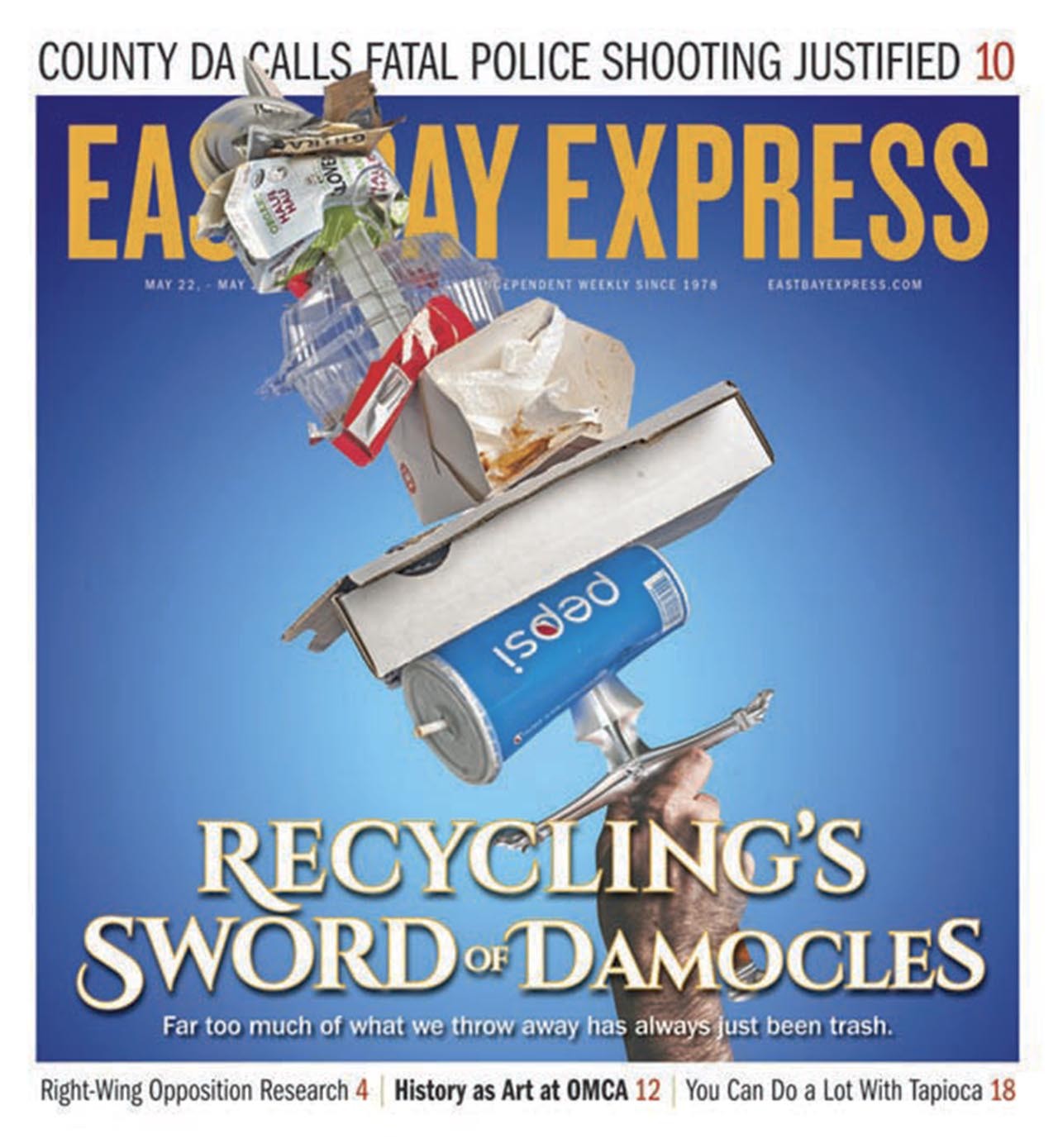
Recycling’s Sword of Damocles, Feature, May 21
The Problem With Recycling
I found your article on recycling very illuminating, and realize I have to start recycling less. I have a few associated pet peeves that I’d wish you’d address:
1. All bottles, like juice bottles, cleaning products, etc. should require a deposit.
2. The deposit should be more than 5 or 10 cents. If every bottle was, say, $.25, people would have more incentive to return them. If you purchase, say, a 12-pack of water, you’d pay a deposit of $3. But you’d get that back upon redemption, so it’s really only a 1-time outlay.
3. There should be more accessible redemption options. I have to go two towns over and wait in line, which for many people makes the deposit a tax rather than a deposit. When I lived on the east coast we had redemption machines for cans and glass in every supermarket. Why isn’t that available here?
Roy Harkow
The US needs to establish big carrots and sticks that induce the use of easily recycled containers and charge for the use of less- or non-recyclable materials, especially plastics. We need to tax all uses of plastic. The taxes need to account for climate change and the medical concerns around micro-plastics. When manufacturers have to pay more to use plastic packaging or plastic instead of other materials, they’ll stop.
Matt Cantor
Some recycling makes abundant sense and some is just feel-good stuff.
Aluminum and scrap iron (including cans) are excellent candidates for recycling. Cardboard is also a good candidate if there’s a paper mill reasonably close. To some extent, newsprint can be recycled, although the supply far exceeds the demand. And adding other kinds of paper to the recycled mix lowers the value of the newsprint. (Newsprint mostly gets used making certain products like liners for automotive glove compartments and trunks. Since the demand is limited most of the newsprint goes straight from the recycling center to the landfill.)
Glass can be recycled only if there is a local glass factory (which needs a certain amount of cullet) or cement plant (which uses glass as a silica source) to take it. Products like “glassphalt” haven’t worked out too well. However, glass beverage bottles that come from a local bottler are excellent candidates for reuse. (Reuse is always superior to recycling!)
Finally, certain automotive parts are successfully recycled all the time. There’s a thriving market for motor and generator cores and old batteries. Other parts are sold at junkyards for reuse. What doesn’t get sold eventually gets sold as scrap and goes into the next generation of steel.
The thing NOT to do is to obsess on recycling every little thing. That’s what can kill recycling efforts.
James Castro
Recycling is a nonsensical non-solution to a serious problem. The garbage industry has been pumping up recycling in all the ways it can because it is a fact that the more recycling is imposed, the more garbage is created, and that is what makes their profits. When people think garbage is being recycled (even when it isn’t) they are much more accepting of garbage creation. Look at SF’s situation if you need evidence.
The answer to resource over-consumption never was recycling. It is called Zero Waste and it depends on redesigning all goods for perpetual reuse. Current design practices are for a short life followed by easy discard. Once the design is in, it’s almost impossible to change it. Recycling falls flat on its face dealing with goods that are DESIGNED for discard with social choices mandating discard. Learn much more by going to ZeroWasteInstitute.org.
In 2007, I wrote the widely distributed The Death Of Recycling. I wrote a website for Project Censored targeted at Berkeley but this city seems to be religiously devoted to recycling, whether it makes any sense or not. Now that anyone can see the bankruptcy of recycling theory, it is time to try a scientific approach and actually analyze the reasons why garbage has become the universal endgame for valuable resources.
Or just keep beating on the dead horse of recycling. Your choice.
Paul Palmer
So if I read this right, “non-profits” have been knowingly cheating all along; while waggling fingers, scolding us to all do our parts. Doing NOTHING but scold, not looking into what can or should be done about the non-recyclables?
“The recycling industry is in a very difficult situation financially right now,” Bourque said. “But hopefully a lot of really exciting innovation is going to come out of that.”
The innovation SHOULD have come out the industry long ago. I dislike left-wing puritans maybe more than the right-wing flavor. We at least know what kinds of greedy, venal nonsense right wing type is up to and we can push back.
Bruce Ferrell











